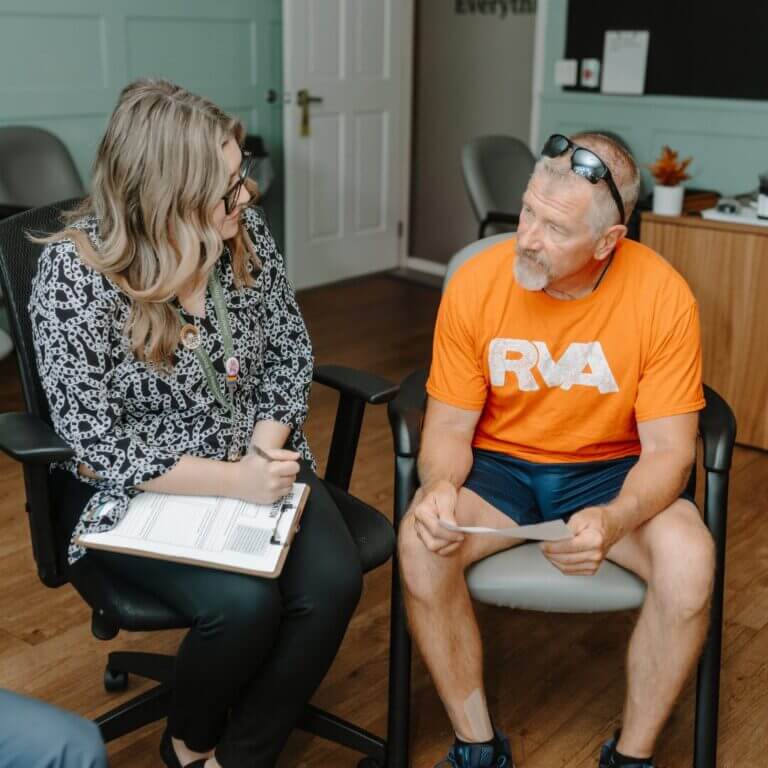Establishing healthy boundaries is one of the most important steps to take in early recovery. But setting and respecting boundaries can be a tricky habit to start. It can be hard to know where to begin.
The first thing to keep in mind is that healthy boundaries are absolutely vital for maintaining sobriety. They don’t exist to keep loved ones at a distance — boundaries are meant to help you find better ways to relate to them.
The goal of a boundary is to find mutually constructive ways to navigate relationships. For example, by acknowledging how someone’s actions or words make you feel, you can then reframe that relationship to be more supportive of your recovery. Your loved ones will also be setting new boundaries that you will need to respect.
How can you and your loved ones set boundaries during recovery? Let’s first take a look at why they are helpful for living a life in sobriety.
Why are boundaries helpful in recovery?
During active addiction, it is common to fall into unhealthy relationship patterns with loved ones. Codependency is often present, as are other types of toxic relationships. Setting boundaries in recovery is a proactive step that requires you to examine these relationships and how they possibly contributed to your substance use. This realization can also be a catalyst for change.
In order to have healthy and effective boundaries, they must be based on a feeling of mutual respect. It takes time for these rules to feel natural, but in time both you and your loved ones will come to respect the new boundaries and realize how beneficial they are.
What are 5 ways you can set and respect boundaries in recovery?
Change is never easy, and setting new boundaries to protect your recovery journey is no exception. There may be some pushback from family members who might struggle to adhere to your new boundaries. However, if they wish to maintain a relationship with you, they will adapt to and respect your new boundaries.
Here are five things to consider when setting new boundaries:
- How does the person or their actions make you feel? Being aware of your emotional reactions, whether to a person, their actions or a particular situation they bring about can help you identify areas that need to change. These responses are telling you that the relationship is not healthy. Take particular note if this relates to them not being supportive of your sobriety. The discomfort you feel is a sign that your values are not being respected.
- Understanding the need to put yourself first. As you navigate early recovery, you begin to realize that boundaries play an important role in protecting your emotional well being and your recovery. Ask yourself what it is you need to feel safe, comfortable and stable in recovery, and develop boundaries around those needs. Putting yourself first communicates to others that you value and respect yourself.
- Create a list. Writing down each of the boundaries you wish others to adhere to, and why the boundary is important to your sobriety, reinforces them in your mind. You can then refer to the list anytime you need to refresh your commitment to the boundaries and why you felt they were important in the first place.
- Consider both internal and external boundaries. Both types of boundaries are important in recovery: Internal boundaries refer to your thoughts, feelings and will — external boundaries refer to the actions of those people around you. Learn to respect your internal boundaries by taking control over thoughts and actions, and your external boundaries by gently reminding loved ones to honor them, remembering always that respect is a two-way street.
- Communicate with kindness. As you begin the process of communicating your new boundaries with loved ones, do so in a positive manner. Refrain from statements that start with “You make me feel…” or “You always do…” and instead use statements that start with “I feel…” This helps deflect a defensive reaction while still getting your point across.
Boundaries are an essential recovery tool that helps you to succeed in sustaining sobriety, while significantly improving your relationships moving forward.
Ashley Addiction Treatment, formerly Father Martin’s Ashley, is a nationally recognized nonprofit leader in integrated, evidence-based treatment for substance use disorders. Our programs are accredited by The Joint Commission, and result in frequent publications of ongoing research into effective treatment methodologies. We offer holistic care that encompasses the mind, body and spirit through inpatient and outpatient treatment, provide drug detox, relapse prevention plans, family wellness programs and a variety of other services tailored to each patient’s unique needs. Our driving principle — “everything for recovery” — reinforces our mission to transform and save lives through the science of medicine, the art of therapy and the compassion of spirituality, and is complemented by our philosophy of healing with respect and dignity. For information about our comprehensive programs, please call 866-313-6307.



